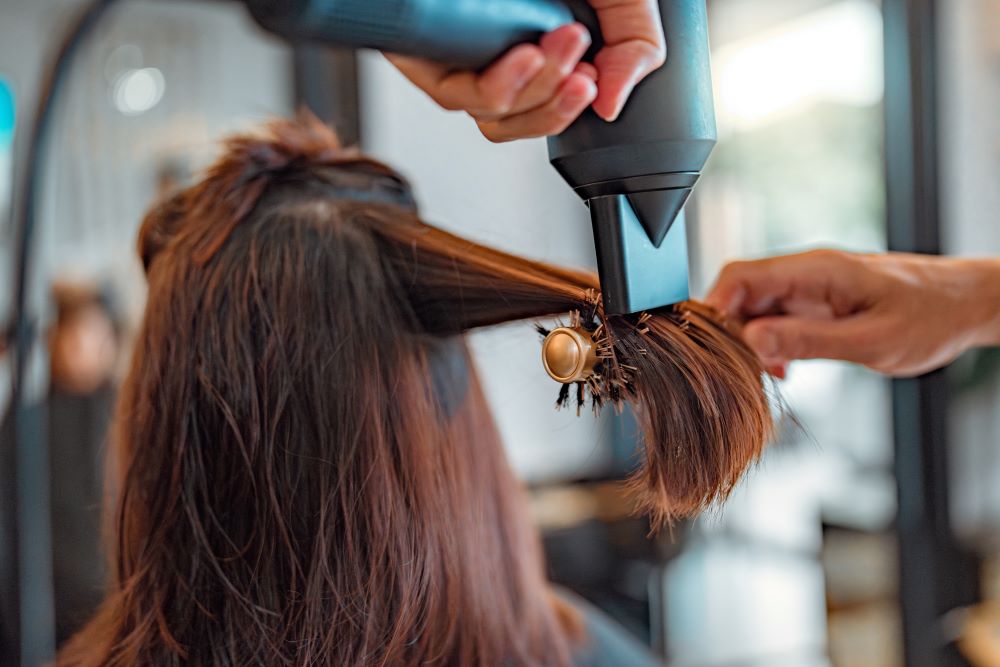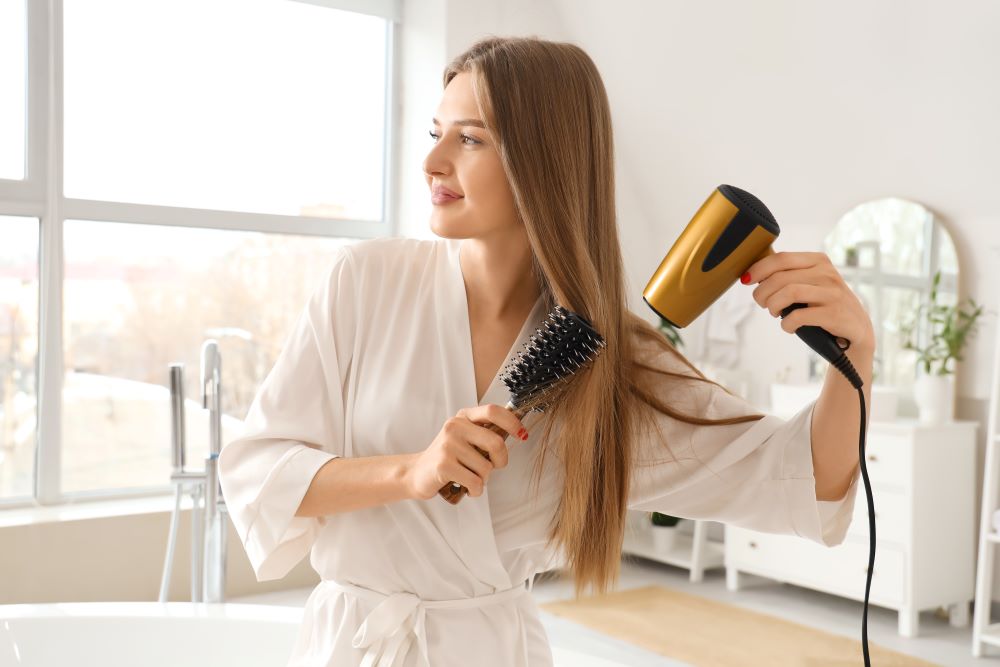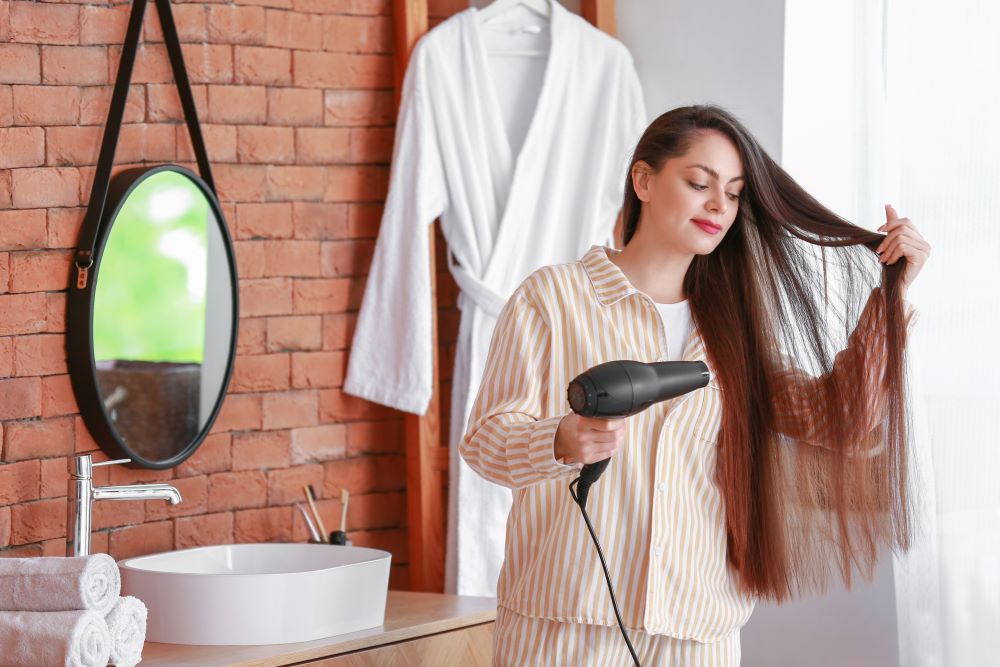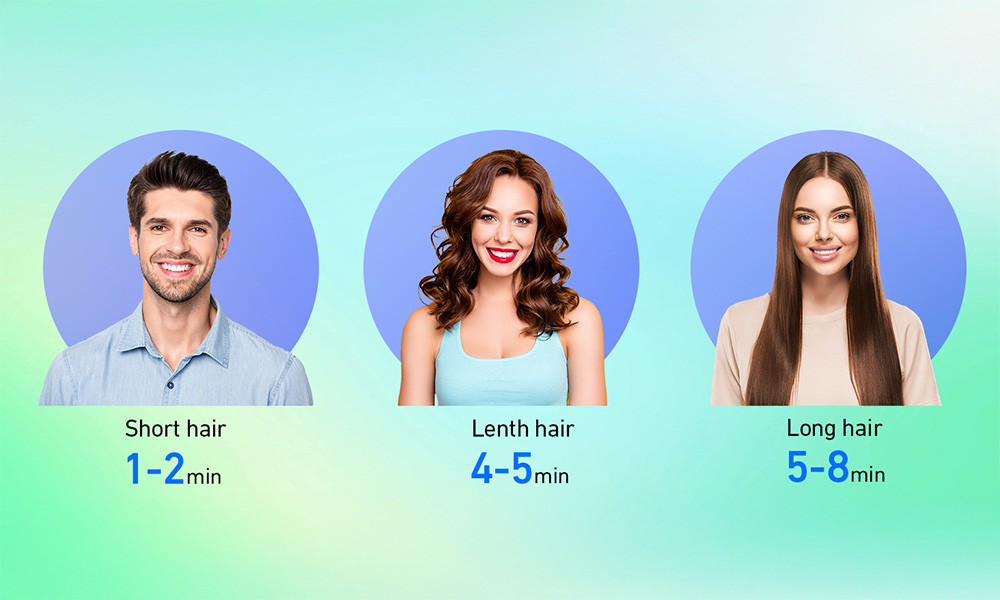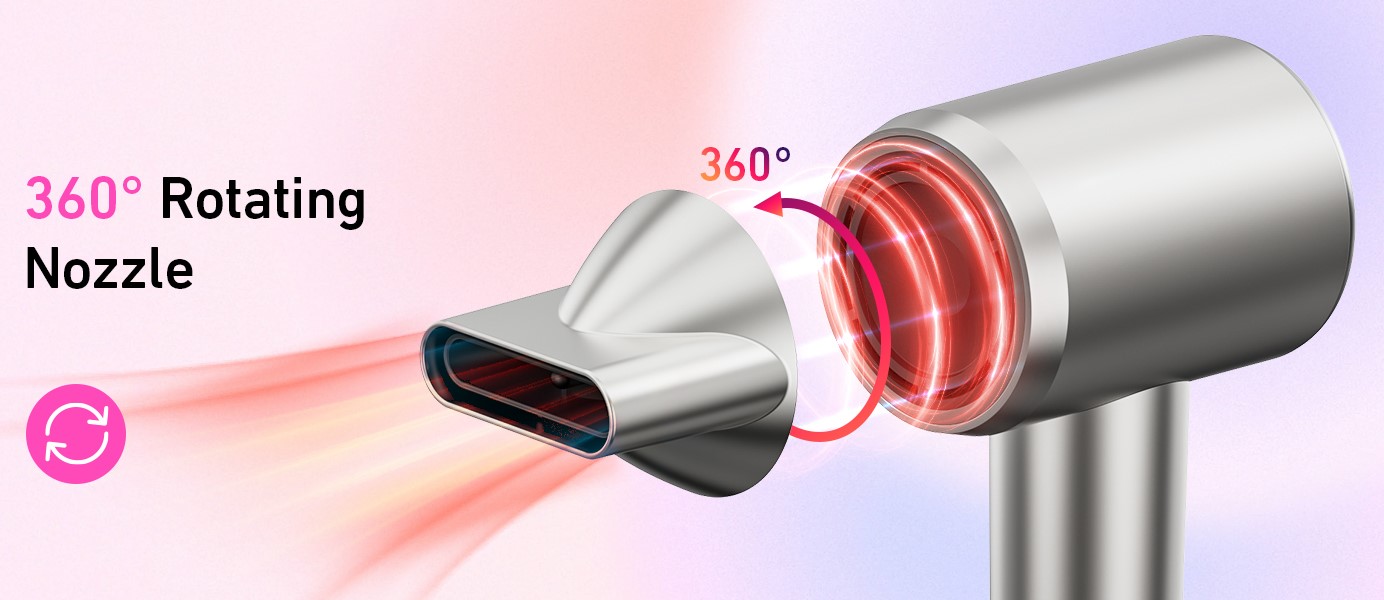
- Home
- Hair Dryer
- Hair Care Tips
- Scalp Care Secrets: Promoting Healthy Hair from the Root
Scalp Care Secrets: Promoting Healthy Hair from the Root
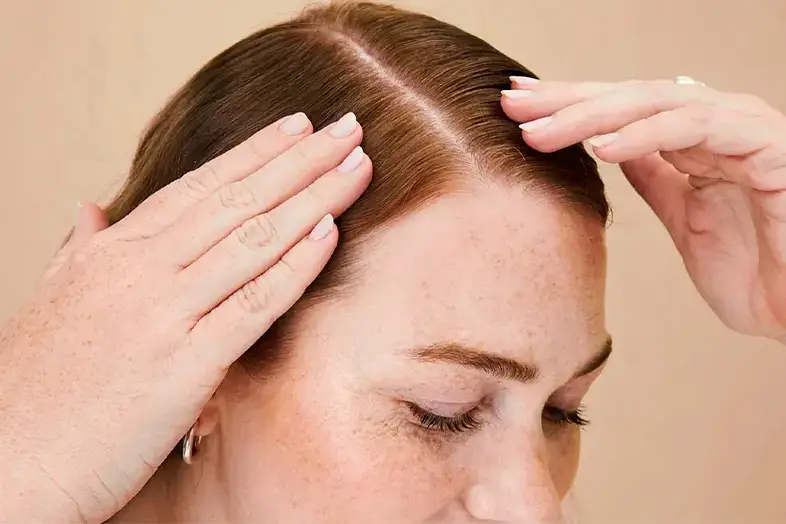
Welcome to the first step of your journey towards luscious, healthy hair. Before diving into products and routines, it’s crucial to understand why scalp health is paramount. The scalp is where hair begins its growth cycle, nurtured by a network of blood vessels and nourished by the oils produced by its glands. A balanced, healthy scalp environment is essential for producing strong, vibrant hair. Just as a plant relies on the quality of its soil to grow, your hair depends on the health of your scalp. Neglecting scalp care can lead to issues such as dandruff, psoriasis, and even hair loss. Conversely, a well-cared-for scalp can enhance hair texture, increase growth, and leave your locks looking their best. This section lays the groundwork for why every strand of hair care begins with the scalp, setting the stage for a deeper dive into maintaining its health.
Chapter 1: The Science of the Scalp
Anatomy 101: Getting to Know Your Scalp
The scalp is more than just the skin on top of your head. It’s a complex ecosystem home to hair follicles, sebaceous glands, and a rich supply of blood vessels. Understanding this anatomy is key to recognizing how various products and treatments affect hair growth and scalp health. For example, the sebaceous glands produce sebum, an oil that naturally conditions hair and skin. Knowing how to balance sebum production is vital for maintaining a scalp environment conducive to healthy hair growth.
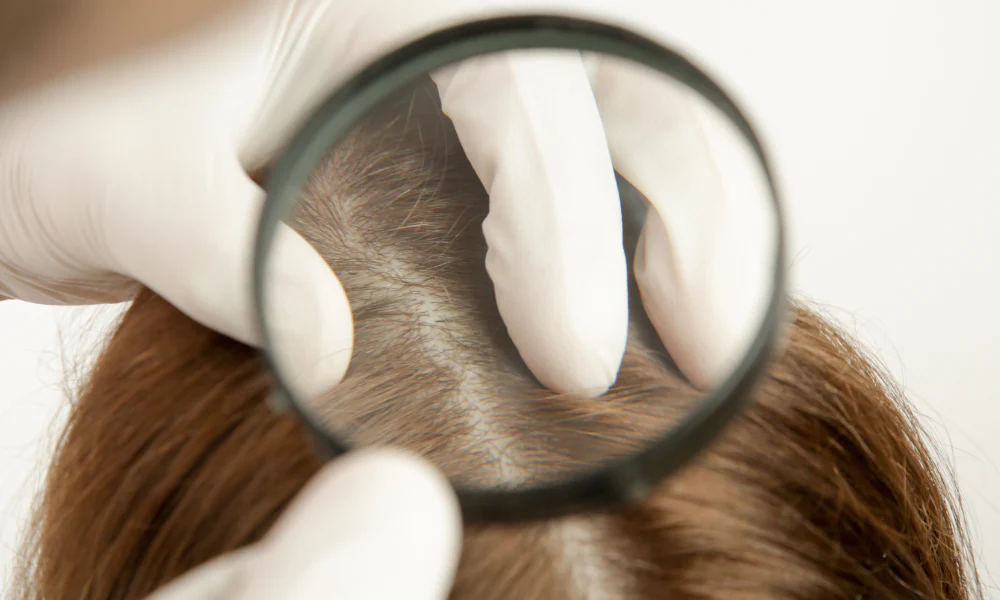
Common Scalp Issues: Identifying and Understanding Dandruff, Psoriasis, and More
Scalp health can be compromised by several issues, with dandruff and psoriasis being among the most common. Dandruff, characterized by flaking and sometimes an itchy scalp, is often caused by an imbalance in the scalp’s natural microbiome. Psoriasis, on the other hand, is an autoimmune condition that leads to thick, scaly patches on the scalp. Understanding these and other scalp conditions is the first step toward effective treatment and management.
The Impact of Diet on Scalp Health: What to Eat for a Happier Head
Nutrition plays a crucial role in scalp and hair health. Essential nutrients, such as omega-3 fatty acids, vitamins A, C, D, E, zinc, and biotin, can influence the health of your scalp and the quality of hair growth. Incorporating foods rich in these nutrients into your diet supports scalp health from the inside out, contributing to overall hair vitality and shine.
Chapter 2: Daily Scalp Care Routines
Cleansing: Choosing the Right Shampoo for Your Scalp Type
Selecting the correct shampoo is foundational to scalp care. Understanding your scalp type—oily, dry, balanced, or sensitive—is essential in choosing a product that will maintain the health of your scalp rather than exacerbate any underlying conditions. For example, those with oily scalps may benefit from clarifying shampoos, while individuals with dry scalps might look for hydrating formulas.
Moisturizing: The Best Conditioners and Oils for Scalp Nourishment

Moisturizing the scalp is just as important as moisturizing the hair. The right conditioners and oils can help maintain the scalp’s moisture balance, preventing issues like dryness and irritation. Natural oils like jojoba and argan can mimic the scalp’s natural sebum, providing deep nourishment without clogging pores or weighing down hair.
Exfoliating: How and Why You Should Do It
Exfoliation isn’t just for the skin on your face and body; your scalp benefits from it too. Removing dead skin cells and product buildup promotes a healthy scalp environment, encouraging hair growth. Gentle scalp scrubs or exfoliating shampoos used once a week can help keep the scalp clean and rejuvenated.
The Art of Scalp Massage: Techniques and Benefits
Scalp massage is a delightful way to care for your scalp while promoting relaxation. Regular scalp massages can stimulate blood flow to the hair follicles, enhancing nutrient delivery and supporting hair growth. Moreover, it’s a stress-relieving practice that can be easily incorporated into your daily routine, either when applying products or simply as a stand-alone ritual.
Chapter 3: Advanced Scalp Care Strategies
Detoxing Your Scalp: The What, Why, and How
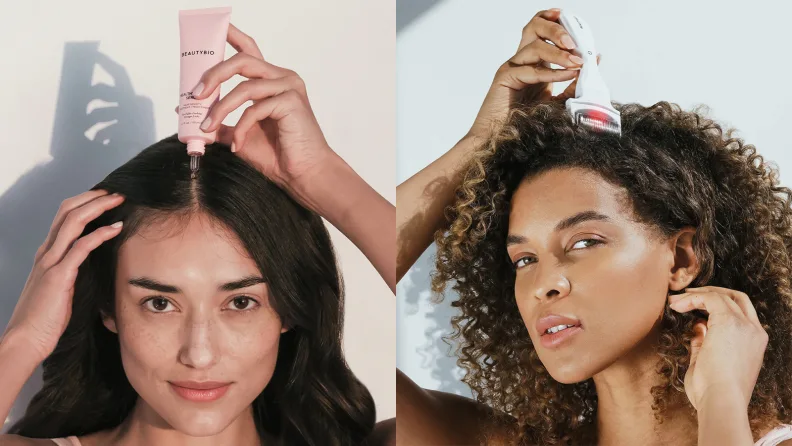
What: Scalp detoxification involves removing the buildup of products, oils, and dead skin cells to rejuvenate the scalp and foster healthier hair growth. It’s akin to resetting your scalp to its natural, balanced state.
Why: Over time, product buildup, pollution, and sebum can clog hair follicles, leading to scalp issues like dandruff, itchiness, and even hair loss. A scalp detox can help mitigate these issues, promoting a healthier environment for hair growth.
How: Start with an exfoliating scalp scrub to gently remove dead skin cells and buildup. Follow up with a clarifying shampoo to cleanse deeply without stripping natural oils. For a DIY approach, ingredients like apple cider vinegar or baking soda can be effective in removing buildup, while natural oils (e.g., coconut oil) can help moisturize and soothe the scalp post-detox.
DIY Scalp Care Remedies: Natural Solutions for a Healthy Scalp
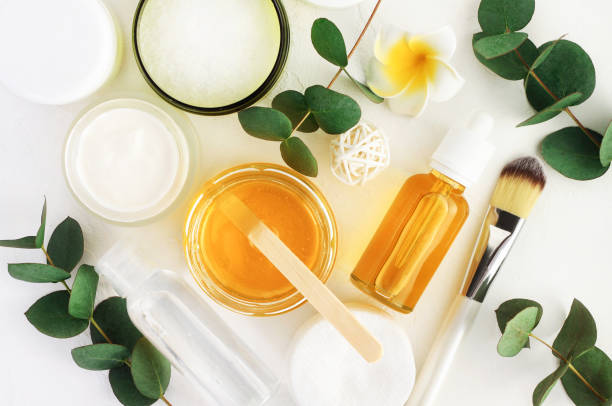
Harness the power of natural ingredients to maintain a healthy scalp. Here are a few easy recipes:
Tea Tree Oil and Coconut Oil Mask: Mix a few drops of tea tree oil with coconut oil for its antimicrobial properties. Apply to the scalp, leave for 20 minutes, then wash out with a gentle shampoo.
Apple Cider Vinegar Rinse: Dilute apple cider vinegar with water (1:3 ratio) and use it as a final rinse after shampooing. This balances the scalp’s pH and reduces buildup.
Aloe Vera Gel: Apply pure aloe vera gel directly to the scalp to soothe irritation and moisturize. It’s great for sensitive scalps and can be left on overnight.
Professional Treatments: When to Seek Help and What to Expect
When: If you’ve tried at-home remedies without success or if you’re experiencing severe scalp issues (such as extreme hair loss, persistent dandruff, or scalp psoriasis), it’s time to seek professional help.
What to Expect: A dermatologist or trichologist can offer treatments such as scalp injections (for hair growth), light therapy, or medicated shampoos and lotions specifically formulated for your condition. They can also provide lifestyle and dietary advice to help address the root cause of your scalp issues.
Chapter 4: The Role of Lifestyle in Scalp Health
Stress and Your Scalp: Understanding the Connection
Stress can wreak havoc on your scalp, leading to conditions like telogen effluvium (temporary hair loss), dandruff, and dermatitis. Managing stress through mindfulness, meditation, and regular exercise can mitigate these effects and promote a healthier scalp.
Exercise and Scalp Health: The Benefits of Getting Moving
Regular exercise increases blood flow to the scalp, nourishing hair follicles with oxygen and nutrients, which can stimulate hair growth. However, it’s important to clean your scalp after sweating to prevent irritation and buildup.
Sleep’s Impact on Scalp and Hair Health: Tips for a Restful Night
Good sleep is crucial for overall health, including scalp health. It helps regulate hormones that affect hair growth and scalp health. Ensure you’re getting 7-9 hours of quality sleep, and consider silk pillowcases to reduce friction and prevent hair breakage.

Chapter 5: Troubleshooting Scalp Issues
When to Worry About Hair Loss: Signs and Solutions
Signs: Sudden, patchy hair loss or losing more than 100 hairs a day consistently could be cause for concern. Also, pay attention to the appearance of your scalp; visible changes or discomfort should not be ignored.
Solutions: Seek a professional diagnosis to identify the cause. Treatment might include over-the-counter minoxidil, prescription medications, lifestyle adjustments, or in some cases, surgery.
Managing Scalp Sensitivity: Gentle Care for Sensitive Skin
For those with sensitive scalp, selecting hypoallergenic and fragrance-free products is crucial. Minimize the use of heat styling tools and harsh chemical treatments. Regularly moisturize with natural oils to maintain scalp barrier function.
Combating Oily or Dry Scalp: Tailored Tips for Balancing Your Scalp
Oily Scalp: Wash your hair with a gentle, clarifying shampoo to control sebum production without stripping the scalp. Avoid heavy conditioning products at the roots.
Dry Scalp: Increase hydration by using moisturizing shampoos and conditioners. Limit washing to prevent stripping natural oils and consider using a humidifier to maintain moisture in your environment.
Chapter 6: Building Your Scalp Care Toolkit
Product Recommendations: Our Top Picks for Scalp Care Essentials
To nurture your scalp and promote healthy hair growth, selecting the right products is crucial. Here are some of our top picks, categorized to suit every scalp need:
For Dry Scalp: Look for shampoos and conditioners infused with hydrating ingredients like hyaluronic acid, aloe vera, and coconut oil. A pre-shampoo scalp oil treatment can also provide extra moisture.
For Oily Scalp: Products containing green tea, clay, and charcoal can help balance oil production without stripping the scalp of its natural oils.
For Scalp Exfoliation: A gentle scalp scrub or a shampoo with salicylic acid can remove buildup and dead skin cells, promoting healthy hair growth.
Scalp Massagers: A silicone scalp brush not only helps in evenly distributing shampoo but also boosts circulation through a relaxing massage.
Creating Your Scalp Care Routine: A Step-by-Step Guide
Weekly Scalp Detox: Begin with a scalp detox treatment to remove buildup. Use a clarifying shampoo or a homemade mixture of apple cider vinegar and water.
Daily Cleansing and Moisturizing: Depending on your hair type, daily or every other day, use a scalp-friendly shampoo followed by a moisturizing conditioner. Remember, the key is gentle, thorough cleansing without overstripping.
Regular Exfoliation: Incorporate a scalp scrub or an exfoliating shampoo into your routine once a week to keep your scalp free of dead skin cells and product buildup.
Nourish and Moisturize: Apply a light scalp oil or serum to damp hair to lock in moisture, especially if you have a dry or flaky scalp.
Massage: Spend a few minutes each day performing a scalp massage, either with your fingertips or a scalp massager. This not only promotes relaxation but also stimulates blood flow to the follicles.
Evaluation: Regularly assess your scalp’s health and adjust your routine as needed. If you notice persistent issues, consult a dermatologist.
Conclusion
The Journey to Healthier Hair: Embracing Scalp Care as a Lifestyle
Adopting scalp care as a part of your daily beauty regimen is not just about addressing issues like dryness or oiliness; it’s about creating a foundation for lasting hair health and beauty. Just as you care for your skin, your scalp deserves attention and care tailored to its specific needs. By incorporating the steps and products recommended in this guide into your routine, you’re not only nurturing your scalp but also setting the stage for healthier, more vibrant hair. Let scalp care be your new beauty mantra, and enjoy the transformative journey toward lusher, stronger locks.
FAQs: Answers to Your Most Common Scalp Care Questions
Q: How often should I wash my hair to maintain a healthy scalp?
A: This varies depending on your scalp type. Generally, 2-3 times a week is sufficient, but oily scalps may require more frequent washing.
Q: Can diet affect my scalp health?
A: Absolutely. A diet rich in antioxidants, omega-3 fatty acids, and vitamins can promote scalp and hair health.
Q: Are there any natural remedies for scalp issues?
A: Yes, ingredients like tea tree oil, apple cider vinegar, and coconut oil have been shown to benefit scalp health. However, their effectiveness can vary by individual.
Popular Post

Ultimate Guide to Using a Hair Dryer with Nozzle for Styling
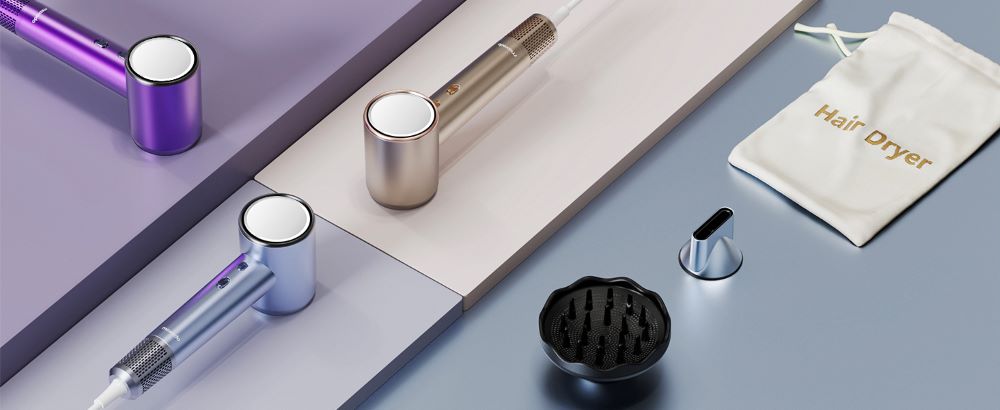
The Benefits of Using a Hair Dryer with a Diffuser
